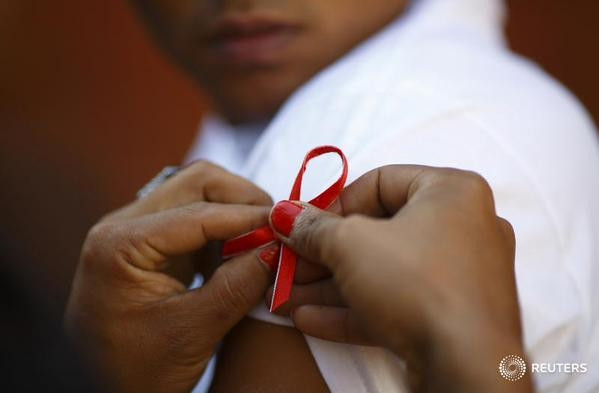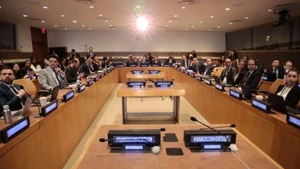The UN Millennium Development Goal to halt and reverse the spread of the disease has been achieved, said UNAIDS, the global body's agency focusing on the disease.
"Ending the AIDS epidemic as a public health threat by 2030 is ambitious, but realistic, as the history of the past 15 years has shown," U.N. Secretary-General Ban Ki-moon said in a report released at a financing conference in Ethiopia on Tuesday.
Some 15 million people are receiving antiretroviral treatment for HIV/AIDS, a staggering increase from less than 700,000 in 2000.
AIDS-related deaths have dropped more than 40% since 2004 to 1.2 million a year, the report said. New HIV infections have fallen by 35% since 2001 to 2 million a year in 2014.
One of the most remarkable successes has been reducing new infections among children by 58% between 2000 and 2014, the agency said.
This has been achieved by ensuring women with HIV receive medicine to prevent them from passing on the infection when they give birth.
Last month, Cuba became the first country in the world to eliminate mother-to-child transmission of HIV.
















